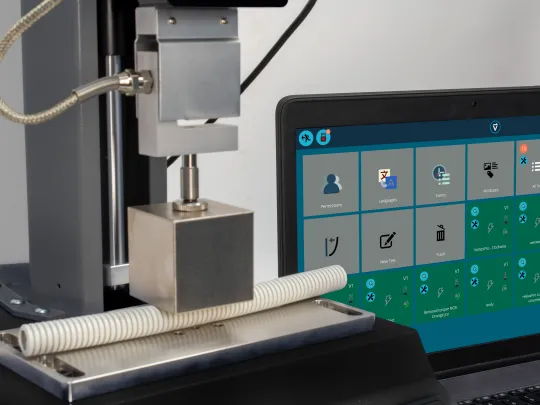Switches and connectors may be low-cost simple electro-mechanical devices but they are ubiquitous in millions of products and devices we use every single day. A switch failure or a loose connection will invariably render the device unusable and will require a product repair,often under warranty. In the case of automotive vehicles, stripping out a wiring harness to repair a faulty connector is a painful costly exercise !
Connectors are joined to electrical conductors to create an electrical circuit. This joint between metal wire and connector is typically crimped mechanically and wire harnesses often use an ultrasonically welded splice - whatever the jointing method, the connection must remain strong whilst providing optimal electrical conductivity. Testing the pull-off strength of crimped wire terminals is a well-established routine quality-control test and is one of the most popular applications for Mecmesin's tensile testers.
Switches disconnect or connect the conducting path in an electrical circuit and they are either completely on (“closed”) or completely off (“open”). Mecmesin's computer-controlled force and torque test systems have been developed to precisely and repeatably test the switches by plotting load/displacement profiles and detecting the 'closed' and 'open' switching points. Ensuring these points fall inside the specified tolerance bands is key to guaranteeing optimum switch performance, particularly for touchscreen devices where membrane deflection is minimal.


















